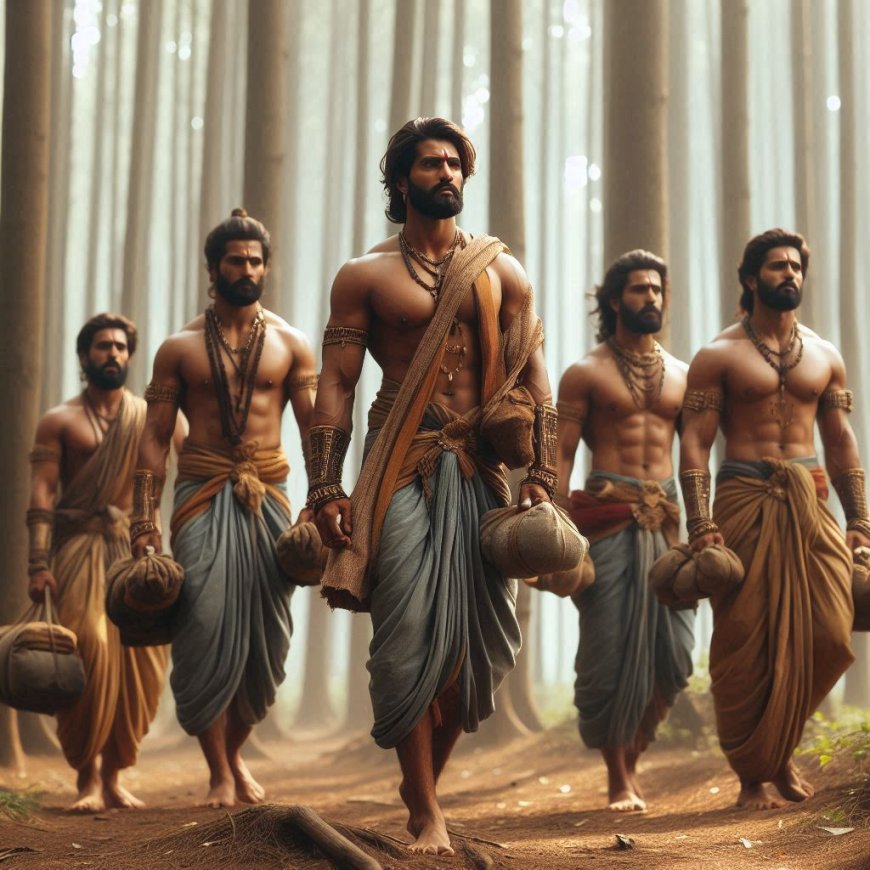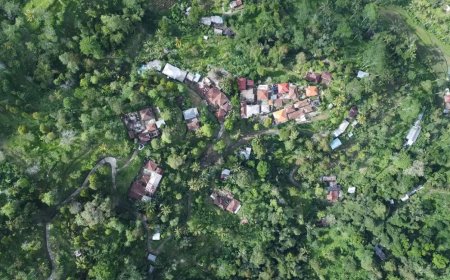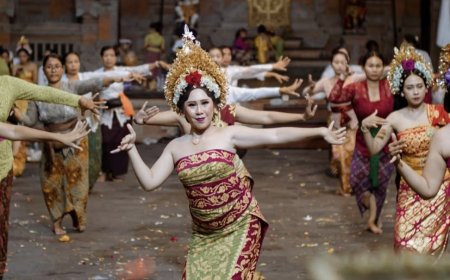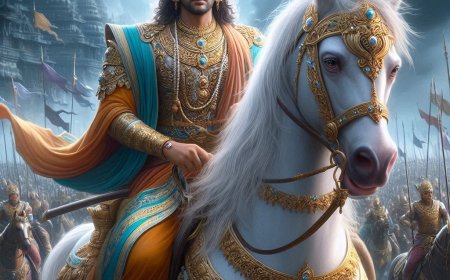The Story of Sabha Parwa: The Reason Behind the Pandavas Exile
Sabha Parwa is the second part of the Mahabharata epic that narrates the beginning of the great conflict between the Pandavas and the Kauravas. In this section, the story centers around the events of the dice game orchestrated by Shakuni, in which Yudhishthira, the king of the Pandavas, falls into a bet that causes him to lose his kingdom, wealth, brothers, and even his wife, Draupadi. This event marks a crucial turning point that deepens the rift between the two sides and becomes the precursor to the great war at Kurukshetra.

Sabha Parwa, the second part of the Mahabharata epic, is the starting point of the great conflict between the two powerful families, the Pandavas and the Kauravas, which culminates in the great war at Kurukshetra. This tale reveals the political intrigue, jealousy, betrayal, and moral downfall that occurred among the ancient epic heroes. The story begins with the Pandavas, who were believed to have died in a fire at the Palace of Wax (Warnabrata). This fire was suspected to be caused by the Kauravas, who were envious and fearful of the growing power of the Pandavas. With the Pandavas believed to be dead, Duryodhana, the eldest son of Dhritarashtra, was crowned as the crown prince of Hastinapura.
Image of Barren Land Khandavaprastha (Source: Private Collection)
However, the Pandavas were actually alive and returned after years of hiding. They demanded their rightful claim to the throne of Hastinapura. Yudhishthira, the eldest Pandava, was the legitimate heir to the throne, but Duryodhana’s coronation as crown prince had been done without considering the rightful claims. Under increasing pressure, Dhritarashtra, the king of Hastinapura, offered a replacement territory to the Pandavas to avoid further conflict. The Pandavas were then given the region of Khandavaprastha, a barren and uninhabitable area.
Image of Khandavaprastha Transformed Into Indraprastha (Source: Private Collection)
Despite the region being barren and uninhabitable, the Pandavas, with unwavering determination and the help of the divine architect Vishwakarma and the god Indra, managed to build a magnificent city known as Indraprastha. This city rapidly developed into a center of prosperity and culture that rivaled Hastinapura. The Pandavas' success in transforming this desolate area into a thriving city drew the attention of the entire Indian kingdom. Indraprastha became a symbol of the Pandavas’ glory, achievement, and power.
The Pandavas' success not only became a source of pride for them but also fueled Duryodhana's envy. When Duryodhana visited Indraprastha to attend the Rajasuya ceremony, a coronation ritual for Yudhishthira as the supreme king, he felt humiliated by the opulence and power displayed by the Pandavas. The grandeur of Indraprastha, built with divine architecture, amazed all guests, including Duryodhana. However, this admiration quickly turned into anger after he was humiliated in a disgraceful incident.
In the illusion-filled palace, Duryodhana was deceived by the floor that appeared to be a water pool, and he fell into the actual pool. This incident was witnessed by Bhima and Draupadi, who laughed loudly at Duryodhana, now sprawled in the pool. This humiliation left a deep scar in Duryodhana's heart and strengthened his resolve to destroy the Pandavas.
Duryodhana then consulted his uncle Shakuni, known for his cunning. They devised a plan to defeat the Pandavas without resorting to weapons. Shakuni knew that Yudhishthira, the leader of the Pandavas, had a significant weakness—his love for gambling. Shakuni suggested inviting the Pandavas to play dice at Hastinapura, with Shakuni himself playing on behalf of Duryodhana. Cunningly, Shakuni ensured that Yudhishthira would lose everything in the game.
With the plan set, Duryodhana and Shakuni approached Dhritarashtra to seek permission for the dice game. Dhritarashtra was initially hesitant, knowing that Duryodhana’s intentions were driven by envy and greed. However, Shakuni's intelligence succeeded in persuading Dhritarashtra to approve the plan. The Pandavas were invited to Hastinapura to attend the dice game, which was conveyed through Vidura, the wise advisor and also Dhritarashtra’s brother. Although Vidura opposed the idea, he still carried out the king’s order and invited the Pandavas.
The Pandavas, unaware of the malicious intent behind the game, accepted the invitation with respect. They traveled to Hastinapura and were warmly welcomed by Duryodhana. The dice game appeared to be a peaceful family event. Yudhishthira, although initially hesitant to gamble, eventually agreed to play after being persuaded by Shakuni. Shakuni assured him that the stakes remained within the family, and there was nothing to worry about. Unknowingly, the Pandavas had walked into a trap set by Shakuni.
Image of The Dice Game Between Shakuni and Yudhishthira (Source: Private Collection)
The dice game began, and Yudhishthira quickly realized that luck was not on his side. Every time the dice were rolled, Shakuni, playing on behalf of Duryodhana, managed to defeat him. Soon, Yudhishthira lost the Pandavas' wealth and possessions one by one. The atmosphere in the room began to tense, but Yudhishthira still did not give up. He continued to gamble, hoping to win back his fortune, but the dice continually favored Shakuni. After all the Pandavas’ possessions were lost, Yudhishthira desperately staked their kingdom, Indraprastha, which also fell into Duryodhana’s hands.
This defeat did not make Yudhishthira stop. In desperation, he began to stake his brothers one by one. Sahadeva, Nakula, Arjuna, and Bhima were all gambled away, and all lost. After losing all his wealth and brothers, Yudhishthira staked his only remaining asset—Draupadi, his wife. This wager shocked all attendees, but Yudhishthira, trapped in the game, could not be stopped. Draupadi, a revered queen, was now staked as a prize in the dice game.
Image of Duryodhana Pulling Draupadi’s Sari (Source: Private Collection)
Fueled by his resentment, Duryodhana immediately ordered his brother Dushasana to drag Draupadi into the hall where the game was being held. Draupadi, shocked by her fate, refused to appear in the hall. However, Dushasana forcibly dragged her before the assembly. In front of everyone, Draupadi was humiliated. She angrily questioned whether Yudhishthira, who had lost everything, still had the right to stake her. However, Duryodhana and his brothers disregarded this. They continued to disgrace Draupadi publicly.
Dushasana, with cruelty, tried to disrobe Draupadi in front of everyone. However, Draupadi, desperate, raised her hands to the sky and appealed for protection from Lord Krishna. In an instant, a miracle occurred—the sari of Draupadi began to extend indefinitely, preventing Dushasana from removing it. This miracle was bestowed by Krishna to protect Draupadi from disgrace.
Witnessing this humiliation, Bhima, Yudhishthira’s brother known for his strength, could no longer contain his rage. He vowed in front of everyone that someday, he would avenge this by tearing out Dushasana’s heart and drinking his blood. This vow would become a promise fulfilled in the great war at Kurukshetra.
After witnessing the incident, Dhritarashtra finally realized that the game had gone too far. He apologized to the Pandavas and returned all their lost wealth and kingdom. The Pandavas accepted this apology and returned to Indraprastha. However, although their kingdom and possessions were restored, the humiliation they had suffered, especially Draupadi, could not be forgotten.
However, satisfaction was never present in Duryodhana’s heart. Even though the Pandavas’ wealth was returned, Duryodhana still harbored deep resentment. Together with Shakuni, he plotted a second dice game. This time, the stakes were higher: the loser would be exiled to the forest for 12 years, followed by one year of disguise. Dhritarashtra, weak in resisting his son’s wishes, once again agreed to this plan.
The Pandavas, despite knowing the risks, could not refuse this invitation. They once again played dice against Duryodhana, represented by Shakuni. As before, Shakuni ensured that the Pandavas lost the game. Yudhishthira, already exhausted and emotional, lost everything again. The Pandavas had to accept their fate that they would be exiled to the forest for 12 years and undergo one year of disguise afterward.
Image of the Pandavas Departing For Exile (Source: Private Collection)






























































